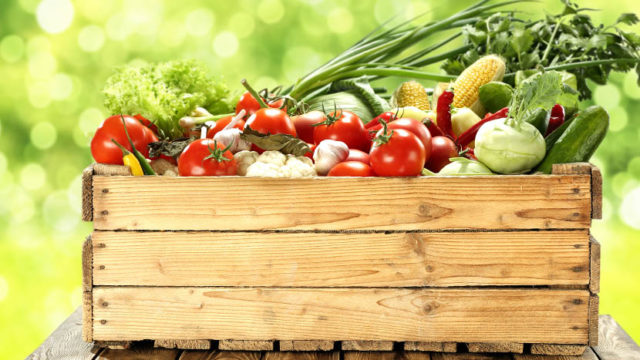We all want to live a healthy disease-free life, right? I know I do. Our daily meals can be a big factor in trying to achieve this important goal. That’s why a whole food plant-based diet is something worth considering and incorporating into your current lifestyle. Making a decision to start a whole food plant-based diet will set you on a path of disease-fighting meal planning. This type of nutrient rich diet will help you lower your risk of disease, give you more energy, and enable you to feel better about your dietary choices.
A Whole Food Plant-Based Diet – What Is It?
Good question. With all the information out there in cyberspace, it can be a bit confusing when trying to figure out what a whole food plant-based diet really is. Simply put, it’s a diet that consists of foods that are as close to their original form as possible. It also includes foods that have not been processed or refined, or contain additives, especially preservatives that keep your food from going past an expiration date. Basically, eating your food in its original, fresh, unchanged state is what eating a whole food plant-based diet is all about.
What Should I Eat To Lower My Risk of Disease?
A wide variety of vegetables, tubers, fruits, whole grains, and legumes offer disease-fighting elements that will lower your risk. Furthermore, by eating whole unrefined, unprocessed plants, your body can take them in naturally, which is easier on your body.
Take a Look at these Disease-Fighting Plants
 Apples: Do you have a sweet tooth? Skip the apple pie and go straight for the raw apple. There is a good reason why they say, “An apple a day keeps the doctor away”. Many studies have found that raw apples top the charts when it comes to healthy foods. Research shows that frequent apple eaters may have a decreased risk of experiencing a stroke, as well as have improved cholesterol levels. So grab this convenient nutritious fruit and take it with you when you leave the house each day. It makes a perfect mid-day snack.
Apples: Do you have a sweet tooth? Skip the apple pie and go straight for the raw apple. There is a good reason why they say, “An apple a day keeps the doctor away”. Many studies have found that raw apples top the charts when it comes to healthy foods. Research shows that frequent apple eaters may have a decreased risk of experiencing a stroke, as well as have improved cholesterol levels. So grab this convenient nutritious fruit and take it with you when you leave the house each day. It makes a perfect mid-day snack.
Cabbage: In an interesting study based on the high intake of cabbage by polish women, it was concluded that cabbage can reduce the risk of breast cancer. They feel this is possible due to the fact that cabbage contains important anti-carcinogenic glucosinolates and myrosinase enzymes.
Brussels Sprouts: This unique plant, with all its antioxidants, has been shown to fight off chronic diseases. It contains healthy elements such as vitamins A, C, K, B, folate, iron, potassium, and others. Brussels sprouts are also a good source of protein and dietary fiber. Think about how much healthier you will feel after adding brussels sprouts to your whole food plant-based diet.
 Purslane: Although nutritious, this common garden weed is typically pulled and tossed. Purslane has great properties that have been known to ward off certain cancers and heart disease. It contains an abundant amount of antioxidants, and other health improving elements.
Purslane: Although nutritious, this common garden weed is typically pulled and tossed. Purslane has great properties that have been known to ward off certain cancers and heart disease. It contains an abundant amount of antioxidants, and other health improving elements.
As you can see, eating a variety of fresh whole food plants can set you on the right path to lessen your risk of disease, as well as keep you healthy and energized. So get ready to feel your best!
Ready to Start Your Whole Food Plant-Based Diet?
If you would like to start your exciting new whole food adventure but would like some tips or guidance, take a look at our Living Raw Food Made Easy program.
Want to take a more serious approach to your new plan for a whole food plant-based diet. If so, read about our Raw & Vegan Culinary Course.

